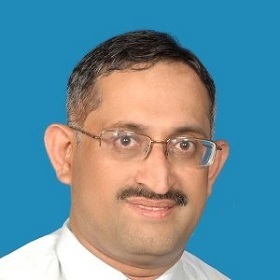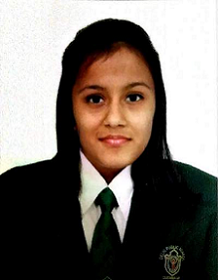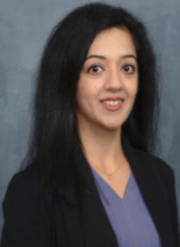Speakers
Ramnarayan Ramachandran
IndiaTitle: Neurosurgery For Psychiatry Problems- Recent Advances
Abstract:
Introduction:
For many centuries neurosurgery for psychiatric disorders was largely non-existent especially in the middle ages. But many developments in recent years renewed the interest. Broca, Wernicke and many others developed the idea that neurological function does have an anatomical base. Similarly, studies on patients with head injury and movement disorders also helped develop the anatomical basis of neurological function.
Presently the use of Deep Brain Stimulation (DBS) is gaining ground. DBS involves stereotactic implantation of electrodes that then continuously emit short high-frequency electrical impulses in order to modulate functional neuronal circuits. The tip of each electrode contains at least four poles. Postoperatively, this permits a wide range of modes of stimulation from outside.
Method:
After a general introduction on the relevance of neurosurgery for psychiatric disorders an attempt has been made to discuss specific use of neurosurgical procedures in various psychiatric disorders. A specific emphasis has been made on DBS as a prototype of neurosurgical techniques in the above conditions. References have been collected from various sources including author's personal experiences/own cases, review of scientific literature and published (international) guidelines.
Results:
The results have been presented and discussed under the headings for specific psychiatric disorders. The authors experience in a few cases are discussed in detail.
Conclusion:
Surgery for psychiatric disorders, presently, has the advantages of being precisely targeted, relatively minimally invasive, essentially reversible and non-destructive, and adjustable with respect to stimulation parameters. These procedures will benefit selected patients with refractory psychiatric disorders.
Biography:
Dr R. Ramnarayan is currently Consultant Functional Neurosurgeon at many hospitals in Chennai, Bangalore, New Delhi, Doha, Muscat, Kuwait, UAE . He has been an invited speaker in many international neurological meetings including U.S., U.K., China, Singapore, Dubai, Tokyo, Turkey etc. He also operates in many countries like Qatar, Oman, UAE, Maldives etc. Dr Ramnarayan has also numerous publications in international journals some of which are very widely quoted. He also was awarded the Gold plaque by the National Neurosciences Centre, Muscat, Oman in 7th December, 2006.
Pranjal Surana
Amity University, India IndiaTitle: To Find The Correlation Between Mindfulness And Happiness During COVID-19
Abstract:
The purpose of the study was to determine the association between mindfulness and happiness among male and female adolescents from Rajasthan. After obtaining the written informed consent, participants were requested to return the duly filled questionnaires which were sent to them through online mode. The present study assessed a sample size of 150 adolescents, 75 males and 75 females on the Mindfulness Attention Awareness Scale and the Subjective Happiness Scale, with inclusive criteria of the age group of 13 to 20 years, knowledge of operating computer or smartphone along with English language. The results revealed that there was a negative relationship between mindfulness and happiness among both male and female adolescents.
Key words: happiness, mindfulness, factors affecting happiness, Mindfulness-Based Cognitive Therapy.
Biography:
Pranjal Surana currently pursuing B.A(HONS) PSYCHOLOGY from Amity Unversity, India.
Sana Javed
Nishtar Medical University, Pakistan USATitle: Dementia Related Mortality And Morbidity In COVID-19 Patients.
Abstract:
Dementia is said to be solid indicator of COVID-19 related deaths. Elderly population with cognitive decline are especially vulnerable to the COVID-19 infection and are at risk for poorer clinical outcomes and mortality. Some of the contributing factors include their old age, frailty, weakened immunity, comorbidities and chronic infections. Pathophysiology of dementia related high mortality in COVID-19 patients is largely unknown. Chronic inflammation and aberrant immune responses in the host can result in long-term neuropsychiatric symptoms. Elderly individuals have changes in their immune system.
These changes include
(i) decline in neutrophil induced phagocytosis;
(ii) decreased superoxide anion
(iii) reduced chemotactic activity of macrophages and phagocytosis; and
(iv) lower peripheral pool of B and T cells, thus inability to fight against new antigen.
Patients with dementia have ApoE e4 genotype which modulates anti-inflammatory phenotypes, therefore a patient with one or both copies of ApoE4, is prone to a more severe COVID-19 infection. These patients also have higher peripheral blood pro-/anti-inflammatory cytokines in addition to amyloid protein in their cerebrospinal fluid. Since patients with dementia have a persistent inflammatory state, they are at a higher risk than people without dementia. Finally, people with mild cognitive impairment, are unable or unwilling to follow the general public health measures such as facemasks, hand hygiene due to the nature of their intellectual deterioration. There is a need for more intensive and more frequent monitoring for elderly people especially those with dementia living in facilities. Further research is warranted.
Biography:
Sana Javed is a graduate from Nishtar Medical University, Pakistan. She is currently residing in the USA and is an aspiring psychiatrist. She is leading the psychiatry research team at Larkin Community Hospital, FL. She has multiple international publications and 1 book chapter. She has been serving as editorial board member of several reputed journals since 2020.



